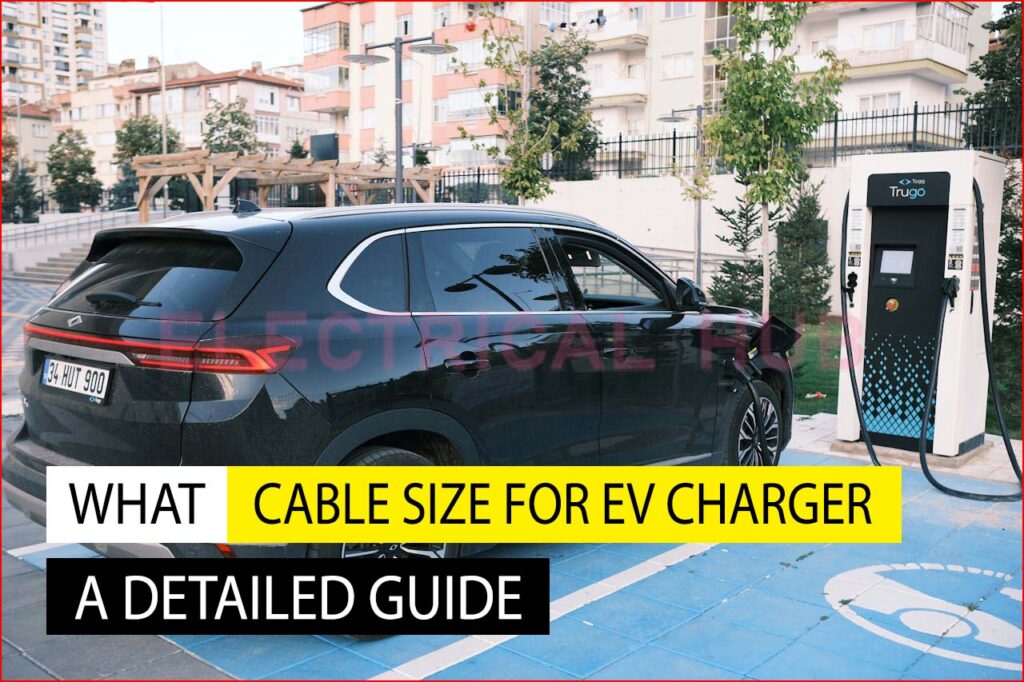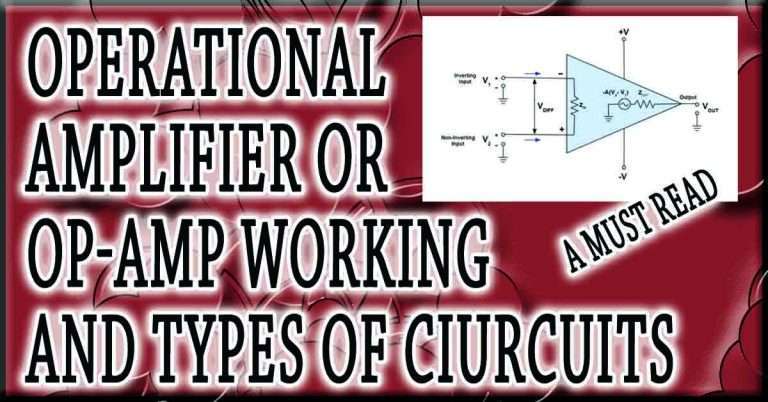What Cable Size for EV Charger: Best Calculator
Electric vehicles (EVs) have become increasingly popular, leading to a growing demand for home EV chargers. However, installing an EV charger isn’t as simple as plugging it in; you need to consider critical factors like cable size to ensure safety and efficiency. Choosing the correct cable size for your EV charger is essential to avoid overheating, power losses, or even potential fire hazards. This article explores what cable size for EV charger is needed and covers related considerations, such as wire gauge, electrical codes, and installation requirements.
Table of Contents
Table of Contents

Understanding What Cable Size for EV Chargers
When discussing What Cable Size for EV Chargers, we’re referring to the wire’s thickness, which determines how much current it can safely carry without overheating. Cable sizes are typically measured in AWG (American Wire Gauge) or in square millimeters for international systems. The larger the cable size (lower AWG number), the more current it can handle.
For most EV chargers, the required cable size depends on factors such as the charger’s power rating, the distance between the charger and the breaker panel, and whether it’s a Level 1 or Level 2 charger.
Learn more about 7kW EV Charger Cost
Factors That Affect EV Charger Cable Size
Charger Power Output
Level 1 chargers typically deliver 120 volts at 12-16 amps, requiring smaller cables. However, Level 2 chargers operate at 240 volts and higher amperages (30-50 amps), necessitating larger wires. For example:
- A 32-amp EV charger may require an 8 AWG wire.
- A 50-amp charger will need a 6 AWG or even 4 AWG, depending on the installation specifics.
Wire Length
Long cable runs result in voltage drops. If the wire length from the panel to the EV charger exceeds 50 feet, you may need a thicker cable to minimize energy losses. For instance, a 6 AWG wire might suffice for shorter runs, but longer distances could require 4 AWG.
Learn more about Portable EV Charger Level 2
EV Charger Cable Size Calculator
Electrical Codes and Regulations
Most jurisdictions follow the National Electrical Code (NEC), which specifies the wire size based on the breaker rating. For example:
- A 40-amp circuit requires a minimum of 8 AWG wire.
- A 60-amp circuit mandates 6 AWG or larger wires.
Use our mm² to AWG guide here.
Ambient Conditions
High temperatures or installation in conduit may reduce the current-carrying capacity of the wire, necessitating larger sizes.
Common Cable Sizes for EV Charger
- 16 Amps (Level 1 EV Chargers): 14 AWG
- 32 Amps (Level 2 EV Chargers): 8 AWG
- 40 Amps: 8 AWG
- 50 Amps: 6 AWG or 4 AWG
- 60 Amps: 4 AWG
Always verify with a wiring size calculator or consult an electrician to ensure compliance with local electrical codes.
What Gauge Wire for EV Charger?
The gauge of wire for an EV charger depends on the amperage. For instance:
- For a 32-amp EV charger, an 8 AWG wire is ideal.
- For higher-powered chargers (e.g., 48 amps), you may need 6 AWG or even larger cables.
Using the correct EV charger wire gauge ensures safe operation and prevents overheating, particularly during prolonged charging sessions.
Learn more about Best Portable EV Charger
Wire Gauge for Electric Car Charger Installation
Here’s a quick reference table for selecting wire gauge based on charger amperage:
| Charger Amperage | Recommended Wire Gauge |
|---|---|
| 16 amps | 14 AWG |
| 32 amps | 8 AWG |
| 40 amps | 8 AWG |
| 50 amps | 6 AWG or 4 AWG |
| 60 amps | 4 AWG |
For installations with long cable runs, upgrade to a thicker cable to account for voltage drop. Use our Voltage drop calculator to estimate the cable size for correct installations.
What Size Cable for Electric Car Charger?
Choosing the correct electric car charger cable size depends on both technical and practical considerations. For home installations, most Level 2 chargers require a 6 AWG or 8 AWG cable. However, for faster chargers or installations with greater distances, 4 AWG cables may be needed.
How to Calculate the Right Cable Size for EV Chargers
To determine the ideal cable size:
- Calculate the Current Load: Use the charger’s power rating to determine the amperage.
- Account for Continuous Load: According to the NEC, EV chargers are considered continuous loads, meaning you must size the circuit for 125% of the charger’s rated amperage.
- Include Voltage Drop: If the distance is significant, factor in a 3% voltage drop to avoid power losses.
- Verify with Local Codes: Local regulations may require specific cable sizes based on the charger’s amperage.
Learn more about Should You Invest in a Level 2 EV Charger?
Related Considerations for EV Charger Cable Size
EV Charger Load Calculation: Before installation, conduct a load calculation to ensure your home’s electrical system can handle the charger. Learn more in our EV Charger Load Calculation.
Professional Installation: While many homeowners consider DIY, hiring a certified electrician ensures compliance with electrical codes. Read: Can Any Electrician Install an EV Charger?
Cost of Installation: The cable size directly impacts the cost. For detailed insights, check How Much to Install an EV Charger at Home?
What Size Wire for EV Charger?
When deciding what size wire for an EV charger, consider the following:
- Level 1 Chargers (120V): 14 AWG wire is typically sufficient.
- Level 2 Chargers (240V): 8 AWG or 6 AWG wire is recommended.
- High-Powered Chargers: For circuits over 60 amps, use 4 AWG or even 2 AWG wire.
Learn more about Type 2 EV Charger
Electric Car Charger Cable Size Tips
- Always follow the manufacturer’s recommendations for cable size.
- Use copper wires for better conductivity and heat resistance.
- Install dedicated circuits to avoid overloading other appliances.
- Consider future upgrades; installing a larger wire initially can save costs if you upgrade to a higher-powered charger.
Conclusion
Choosing the right cable size for your EV charger is crucial for safe and efficient charging. Whether you’re using a Level 1 or Level 2 charger, factors like power output, wire length, and electrical codes should guide your decision. For most home installations, 8 AWG or 6 AWG wires are sufficient, but always consult a licensed electrician to confirm.
Follow Us on Social:
Subscribe our Newsletter on Electrical Insights for latest updates from Electrical Engineering Hub
#CableSizeForEVCharger, #EVChargingCables, #EVChargerCableGuide, #EVChargerInstallation, #EVChargerWiring, #ElectricVehicleCharger, #EVChargingStation, #CableSizeCalculator, #EVChargerSetup, #EVWiringStandards, #EVChargerCableSizing, #ElectricVehicleGuide, #EVChargingTips, #ChargingStationSetup, #EVChargerRequirements


